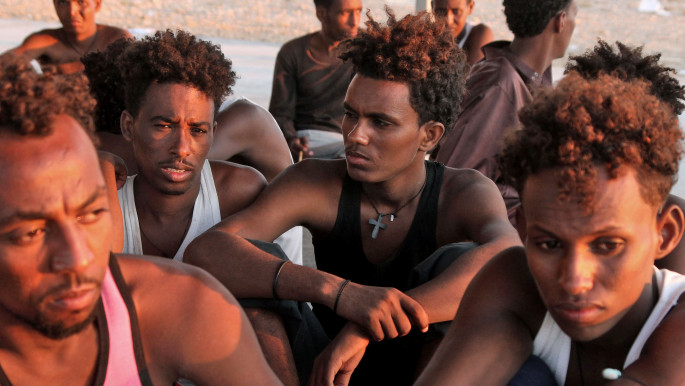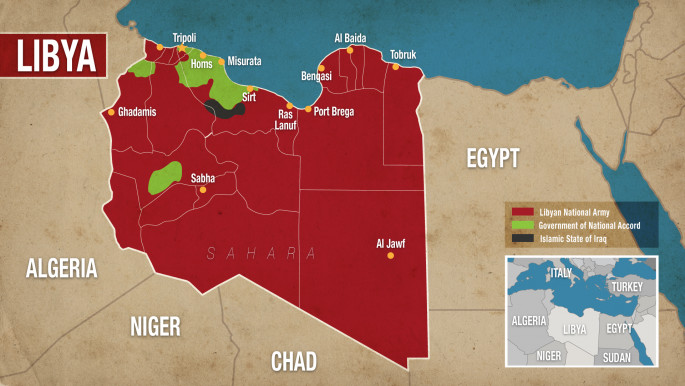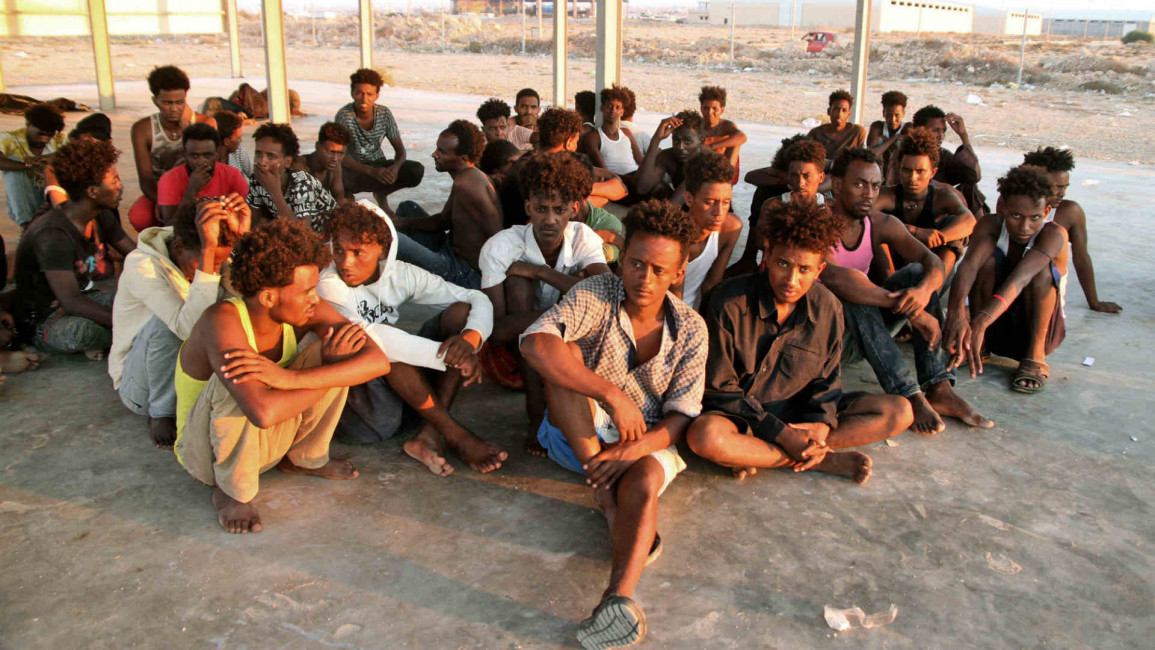Dozens of bodies recovered off Libyan coast after 'worst Mediterranean tragedy this year'
Libya's coast guard recovered dozens of bodies of Europe-bound migrants who perished at sea as search operations continued Friday, a day after up to 150 people, including women and children, went missing and were feared drowned after their boats capsized in the Mediterranean Sea.
A top UN official described Thursday's shipwreck as "the worst Mediterranean tragedy" so far this year.
Also Friday, Libyan authorities transferred dozens of migrants rescued from the disaster to a detention centre near Tripoli that was hit by an airstrike earlier this month despite UN objections to such a move, the UN refugee agency said.
The Anti-Illegal Immigration Agency in the Libyan capital said that up to 350 migrants were on board the boats that capsized Thursday off the town of Khoms, around 120 kilometres (75 miles) east of Tripoli.
The migrants include nationals from Eritrea, Egypt, Sudan and Libya, the agency said.
Libyan officials said more than 130 migrants have been rescued since Thursday.
At least a dozen were taken to a hospital in Khoms while the rest were transferred to different detention centres, including Tajoura, located near the front lines of the fighting between rival Libyan factions.
The officials spoke on condition of anonymity because they were not authorised to brief media.
One of the survivors, from Eritrea, said his vessel started to capsize after an hour of sailing. Most of the migrants on board were women, he said, and most of them drowned.
 |
| Rescued migrants sit on the coast of Khoms[AFP/Getty] |
"All of them (who drowned) were ladies ... only two girls rescued themselves," he said, speaking on the condition of anonymity out of fear for his safety.
The Tajoura detention centre was hit by an airstrike on 3 July that killed more than 50 people and raised new concerns over the treatment of migrants in Libya.
'Lives at risk'
Charlie Yaxley, a UNHCR spokesman, objected on Thursday to transfers to Tajoura, saying, "this has to stop" and that the place should be closed.
"Our joint-call to close Tajoura detention centre does not seem to be heard. This is putting intentionally the life of these people at risk," Vincent Cochetel, the refugee agency's special envoy for the Central Mediterranean tweeted Friday.
However, the UN migration agency said later Friday that the 84 migrants were turned back from the detention center, and that they were instead being "released gradually" into the town of Tajoura.
Amnesty International called on EU leaders to "show some courage" and reverse their decision to halt migrant rescues in the Mediterranean.
Comment: Opposing Libyan sides vie for US support from a capricious White House
The rights group appealed on European nation to change "their approach to a humane one which saves lives and doesn't condemn those who survive to detention in Libya".
"People are still risking their lives to come to Europe," said Amnesty's Massimo Moratti.
The European Union has in the past years partnered with Libya to prevent migrants from making the dangerous journey by sea to Europe.
Rights groups say those efforts have left migrants at the mercy of brutal armed groups or confined in squalid detention centres that lack adequate food and water.
Meanwhile, Italy's interior minister said Friday he won't let 140 rescued migrants off an Italian coast guard ship until Europe agrees to take them.
 |
The Tripoli-based government has blamed the Tajoura airstrike on Hafter's forces, which have denied responsibility and accuse government-linked militias of storing weapons at the facility.
The UN refugee agency says 164 migrants died traveling from Libya to Europe since the start of the year, fewer than in previous years. But the agency says the journey is becoming more dangerous for those who attempt it, with one out of four perishing at sea before reaching Europe.
The UN's death toll of 154 did not include those reported missing at sea Thursday.
Follow us on Twitter: @The_NewArab



